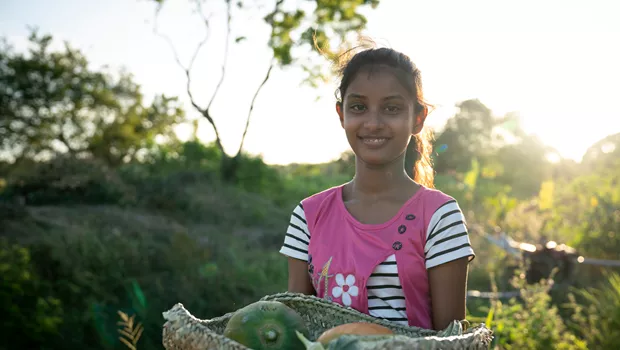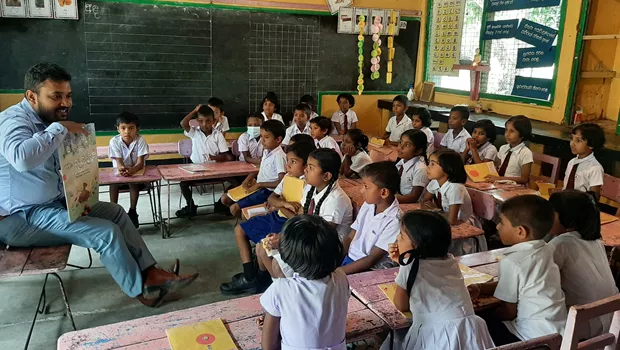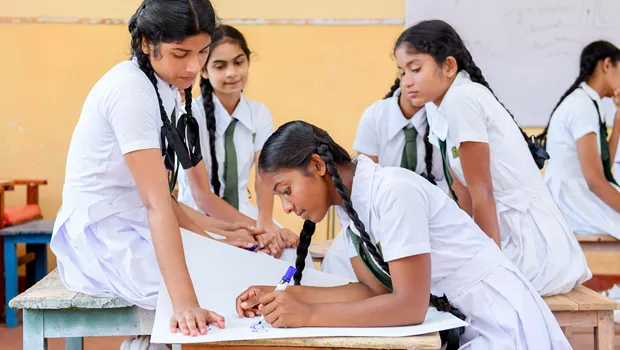One rupee at a time
How a young girl from Sri Lanka built financial literacy amid an economic crisis | April 08, 2024
In 2022, during her first financial literacy class, 14-year-old Vibeetha struggled to understand the importance of saving. During a lesson called "Wants versus Needs," Vibeetha listened to her classmates explain how they saved pocket money, and the rewards of the practice. One of Vibeetha's classmates saved money in the piggy bank. Another explained she had saved enough to buy small gifts for her parents. One student shared that the practice of saving money allowed her to help her family buy food.
When it was Vibeetha’s turn, she revealed that she had never been able to save.
"Saving doesn’t come naturally to me," she told her Room to Read mentor, Kavitha. "Even if I try to save, I can't. If I have 50 rupees or 100 rupees, I will immediately spend it to buy something."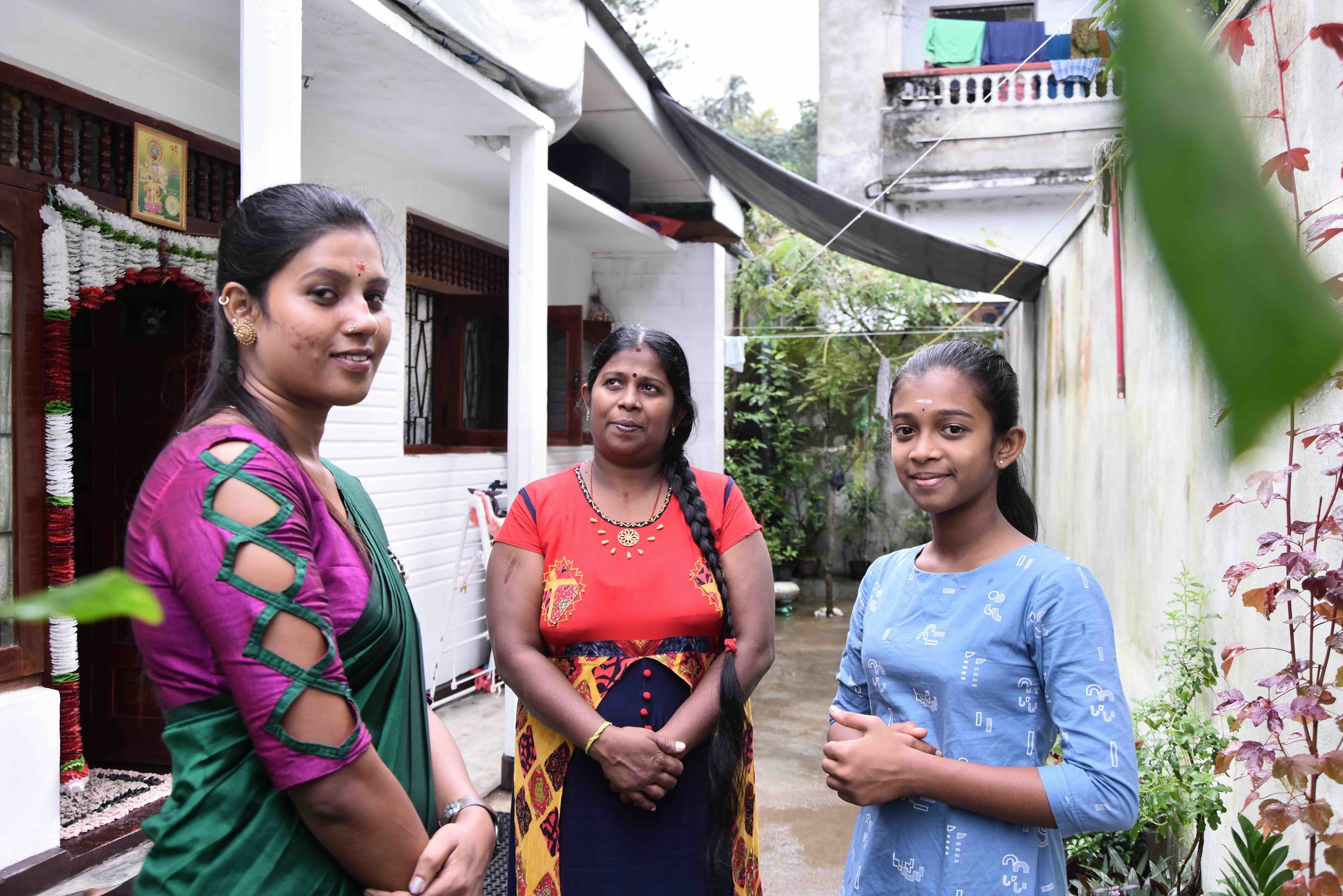 Kavitha (left), a Room to Read social mobilizer in Sri Lanka, stands with Vibeetha (right) and Vibeetha's mother (center) at Vibeeetha's home in the Central province.
Kavitha (left), a Room to Read social mobilizer in Sri Lanka, stands with Vibeetha (right) and Vibeetha's mother (center) at Vibeeetha's home in the Central province.
From the hill country in the Central province of Sri Lanka, Vibeetha lives with her mother, father and older brother. Unlike many of her classmates in Room to Read’s Girls’ Education Program, Vibeetha’s parents were able to maintain a steady income throughout her childhood. Her father worked as a chef in a hotel in Colombo. Her mother was a seamstress. Vibeetha’s father always paid for her school supplies, often splurging on special items like colored pencils, which Vibeetha used to sketch dress patterns.
"My father bought these," Vibeetha shared with Kavitha after a financial literacy lesson, showing her the pencils. “He’d buy anything I ask of him to buy.”
Vibeetha’s reluctance to save came as a surprise to Kavitha. In Kavitha’s time as a Room to Read mentor, she had found that younger students always enjoyed the financial literacy lessons, and were especially engaged in conversations about saving money, even if only very small amounts.
In their one-on-one mentoring session, Kavitha probed Vibeetha to explain her reluctance to putting away the financial gifts she received for celebrations and birthdays. Vibeetha told her that it was simply not a practice in her home.
Even if she could learn to save her money, she shared, her brother would find it and spend it. No one in her family, she explained, practiced saving. They always had just enough for what they needed and any extra was spent freely. There had not been a need for a safety net, she said.
As the school year continued, Sri Lanka entered what would become a catastrophic and enduring economic crisis, one that would devastate families and communities across the country. Kavitha reiterated to her students the importance of establishing a savings. It is in moments like these, she stressed to her Girls’ Education Program students, when we are faced with unforeseen financial challenges, that having money saved is especially important.
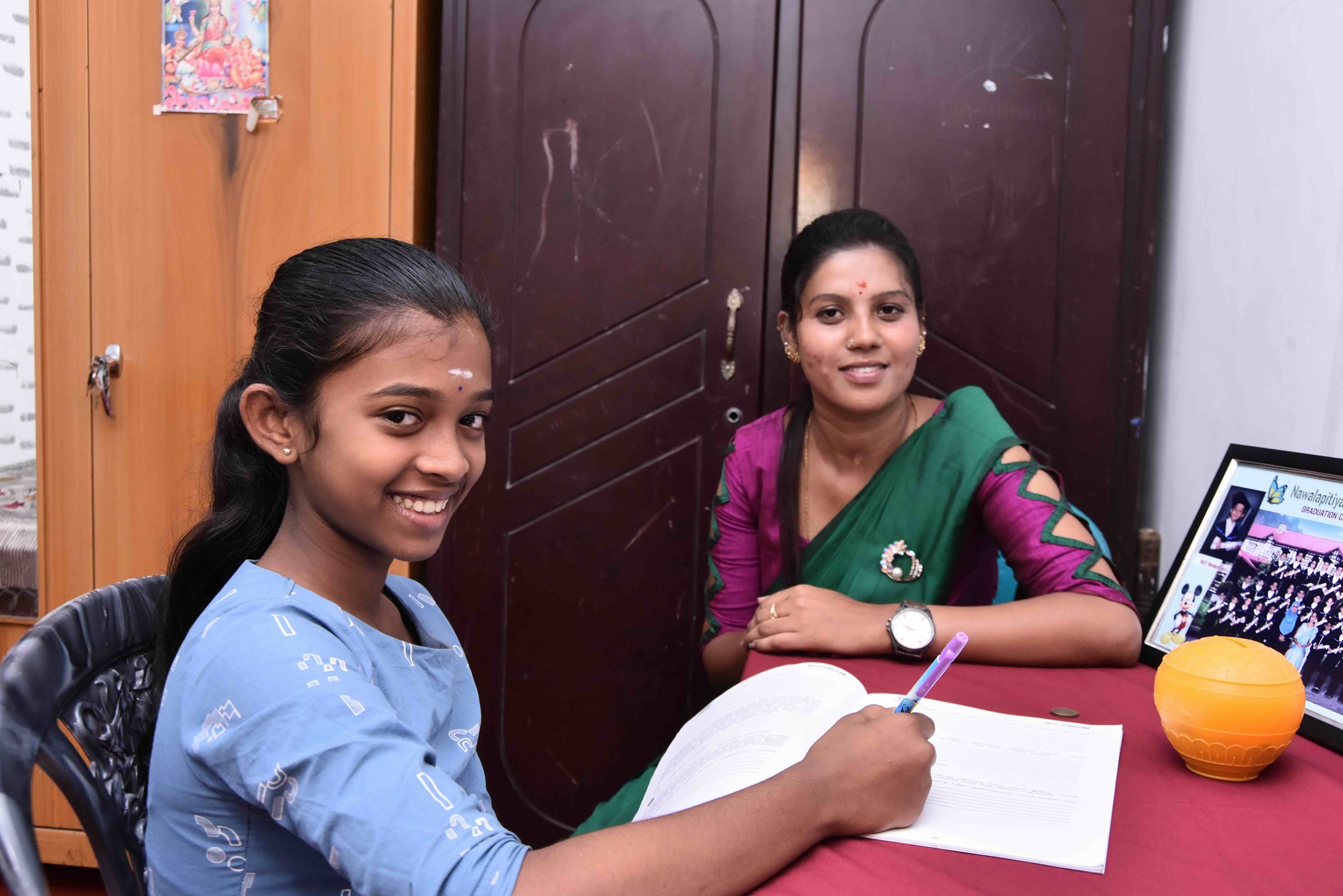 Vibeetha (left) has an individualized mentoring session with her Room to Read social mobilizer, Kavitha, on the importance of differentiating wants from needs when spending.
Vibeetha (left) has an individualized mentoring session with her Room to Read social mobilizer, Kavitha, on the importance of differentiating wants from needs when spending.
Vibeetha returned home from class that day and reflected on the lesson, and on the crisis unfolding in her country. She dug a hole in the yard behind her family home. She took a small amount of money received from relatives in recent holiday gifts and buried it in the soil.
"Teacher," she exclaimed the next morning. "I finally started saving! No one in my family knows."
Kavitha smiled. "Why now?" she asked.
Vibeetha grew quiet, then shared: "My father was sick for two weeks and could not work. With the loss in wages, he had to borrow money from my uncle to buy our essentials.
"The current crisis is making it harder," she continued. "My parents cannot find regular work and my father has struggled to pay back the money he borrowed."
In the months that followed, as Sri Lanka's financial crisis worsened, Vibeetha continued to engage in thoughtful discussions with Kavitha and her classmates on spending and saving, and the difference between wants and needs, through her Room to Read financial literacy class. And she continued to save what she could — small amounts received during celebrations and her birthday. In time, she collected approximately LKR 10,000 — approximately US $33 — enough to buy stationery for the following school year.
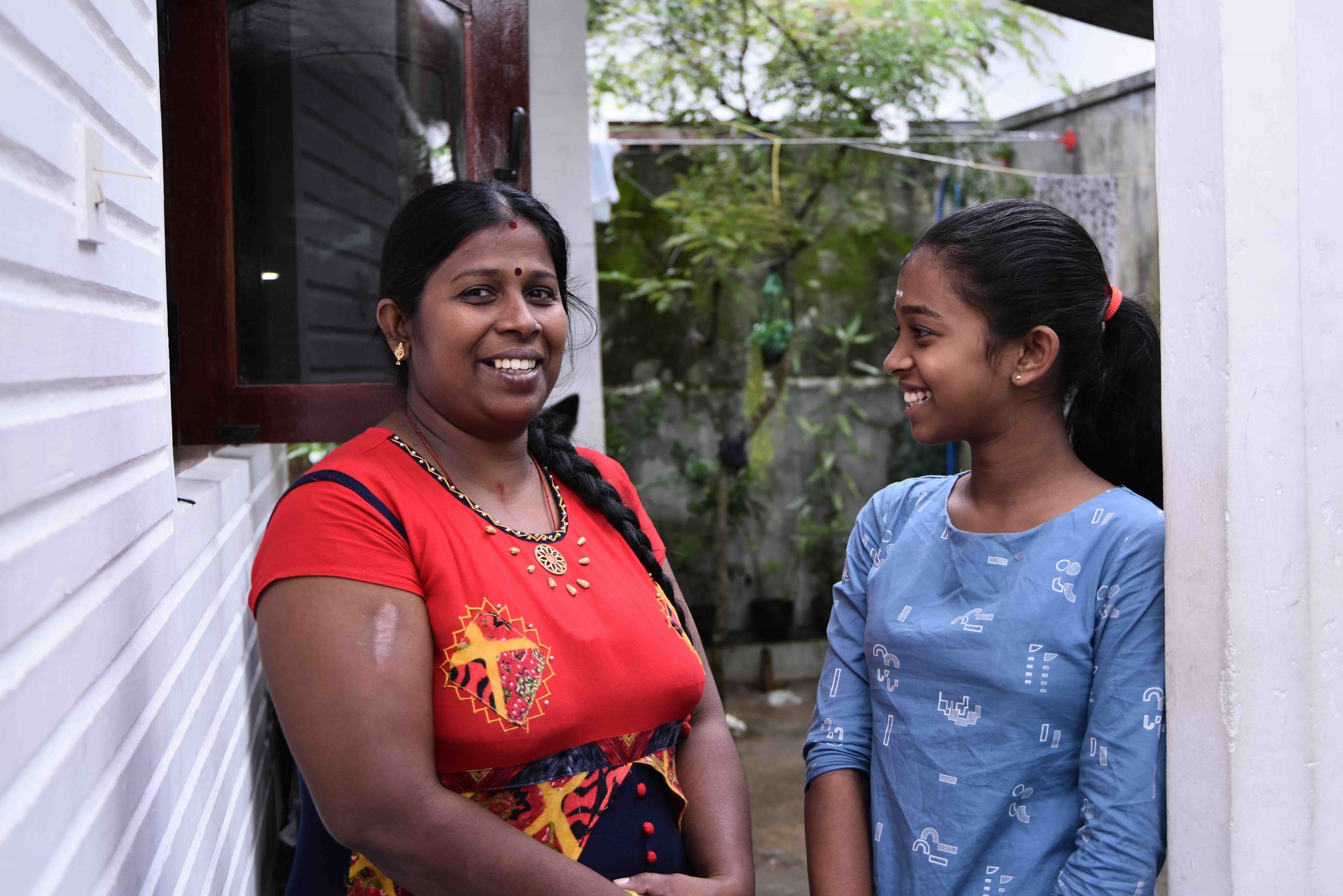 Vibeetha (right) stands with her mother outside their home in Sri Lanka.
Vibeetha (right) stands with her mother outside their home in Sri Lanka.
For $30 a month, you can support a girl in Room to Read's Girls' Education Program, which has helped girls around the globe develop essential life skills like financial literacy.

